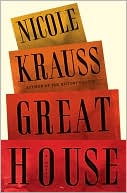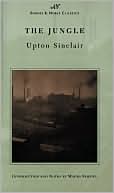Present Value
Fritz Brubaker and his wife, Linda—an attractive couple in their mid-forties—have it all. He’s a toy-company executive and she’s a million-dollar-a-year lawyer. Their children are in private school; they have a McMansion in a Boston suburb and a cottage on Nantucket. But their comfortable world is suddenly turned upside down when Fritz’s company’s stock tanks and he is arrested for insider trading. Linda’s image-conscious firm suspends her. Their houses get repossessed. The kids go haywire....
Search in google:
Fritz Brubaker and his wife, Linda—an attractive couple in their mid-forties—have it all. He’s a toy-company executive and she’s a million-dollar-a-year lawyer. Their children are in private school; they have a McMansion in a Boston suburb and a cottage on Nantucket. But their comfortable world is suddenly turned upside down when Fritz’s company’s stock tanks and he is arrested for insider trading. Linda’s image-conscious firm suspends her. Their houses get repossessed. The kids go haywire. Watching the Brubaker family’s lives unravel is the best way to see the stuff from which they’re really made. This clever, very funny novel is a post-millennial snapshot of America that shows what happens to an economy built on greed when its chickens come home to roost. It’s the story of a family gone wrong, and its attempt to reset its course.The author of two successful thrillers, Sabin Willett delivers in this ambitious new novel the kind of witty social commentary we associate with Tom Wolfe, Jonathan Franzen, and Zadie Smith. But he writes in his own original voice, breaking new ground as he describes a changed world. Present Value is a provocative, wonderfully entertaining ride—an irreverent, clear-eyed view of the way we live now.From the Hardcover edition.Publishers WeeklyWillett (The Betrayal; The Deal) offers a satiric portrait of suburban privilege and privation in the new millennium. Fritz Brubaker is an executive at Playtime, a Fortune 100 toy company; his wife, Linda, is a successful corporate attorney. Armed with Ivy League degrees and with their two children in tow, they zip through the smartest neighborhoods in the smartest vehicles, tethered to one another and the world through cell phones, beepers and, especially, Blackberry PDAs. But life veers off its smooth, comfy road when Playtime's stock value plummets, and Fritz is arrested for insider trading. Linda, who has been having an affair with one of her firm's partners (and discussing it with her therapist, Dr. Schadenfrau, who really couldn't care less), attempts to understand the change in Fritz. Always somewhat indolent, he now seems almost malevolently perverse: he demands she turn off her Blackberry while they're talking, for example, and questions the assumed values of their lives. Then Linda is forced to take a leave of absence and the wolves start howling around the door; soon Fritz is on his way to prison while the lawyers, accountants and even the U.S. Senate grapple with Playtime's financial disaster. Willett's detailed knowledge of legal and financial machinations is complemented by his snappy, fresh prose style, his sharp wit and his ability to draw compelling characters (even when they're rather despicable). It's a clever sendup of striving citizens, and in the end, a morality tale, as the man who thinks he's lost everything discovers that perhaps he's won. (Sept.) Forecast: The McMansion pictured on the book's jacket neatly sums up the world satirized within. Those still in recovery from the dotcom crash will find Willett's novel timely and even reassuring. Copyright 2003 Reed Business Information.
1\ A DELIVERY OF PRECIOUS CARGO\ HEAT! The heat was steamy and suffocating, a humid pall that anticipated the dawn and left everyone a little sluggish, a little vulnerable. It was so hot that the day itself seemed dazed, as though it had got lost from July somehow, made a wrong turn off the calendar, then wandered fitfully in the ether until it stumbled into September. In the suburbs west of Boston that Monday morning, it was not autumn at all; there was no hint or whisper of New England charm to come, nothing of the crisp anticipation of a new school year. It was just a sizzler—a white-sky mugging. And in the car-pool lane at the Chaney School, it was Cairo at noontime.\ “Car-pool lane” was one of the school’s many charming euphemisms, for there wasn’t much pooling evident. The fewer the kids, the bigger the vehicle. The SUVs idled in rank, pumping out pizza-oven blasts of superheated exhaust, inching forward toward the alcove, where each would discharge from seventy-eight cubic feet of cargo space its seven cubic feet of Precious Cargo.\ At just after eight a.m., behind the wheel of his wife’s forest-green 2001 Lincoln Navigator, Fritz Brubaker took his place at the back of the line. In front of the Navigator was a shiny black Chevrolet Yukon XL with a 2500 cc Vortex engine, its powerful air conditioner cooling Precious Cargo by means of an asphalt-melting heat transfer from the tailpipe. In front of the Yukon was a white Mercedes SUV; in front of the Mercedes a Suburban, in front of the Suburban a pearl-gray Range Rover, in front of the Range Rover an Audi A6 all-wheel-drive Quattro feeling smugly and environmentally righteous in this brigade of half-tracks, and in front of the Audi a line of seven-foot SUVs broken only once by a minivan that looked as though it were being held hostage.\ They didn’t wait impatiently, mind you—they advanced smartly, even eagerly, the moment they could, but not impatiently. No impatience would be expressed as the SUV at the front of the line stopped at the alcove and the driver hopped down from the front seat; none as she (usually but not always, either Mom or the nanny) came around to the passenger side to unbelt the cargo with a cheery wave to the vehicle behind; none as she greeted the welcome teacher (this morning it was Mavis Potemkin, one of the team-teaching second-grade pair); certainly no one would express vehicular urgency as the parent straightened the Patagonia backpack on the child’s shoulders (the backpack must be an approved backpack: while the $79.99 JanSport would do in a pinch, a good parent really ought to spring for the $109 Patagonia number); no one in line would be so gauche as to rev a three-hundred-horsepower engine as the parent checked the water bottle (children must be properly hydrated at all times); and then, perhaps most important of all, as the line of idling SUVs pumped remorseless cubic meters of carbon monoxide into the hot morning air, no impatience would be expressed as the parent escorted the Precious Cargo thirty feet across the gravel and through the doorway of Fielding Hall.\ Not that the crushed-stone path between the alcove and Fielding was perilous country. Mishap there was about as likely as, say, a holdup in the Oval Office. Still, this daily station of the parenting cross was vitally important. The car-pool-laners were eager—they wanted to move smartly (but not rudely) and efficiently (but not impatiently) through this process, but no one would rush this event. Because escorting one’s children into Fielding Hall at the Chaney School was a Good Parent Ritual. At the turn of the millennium in tony Wellesley, Massachusetts, just west of the city that liked to call itself the Hub, churchgoing was off, but Good Parent Rituals were the new sacraments. Particularly when other hawkeyed good parents were watching with raptorial intent from their sport utility perches.\ Fritz looked at his car phone, thought about calling the office, and thought better of it. He’d be at Playtime—the international toy, video game, and software conglomerate—soon enough. And on the ninth floor of the company’s Burlington headquarters, there would be a different kind of heat. A bad wind was blowing at Playtime: a hot and angry meltemi.\ Fritz lowered the automatic window and leaned out of the Navigator, craning his neck to count the cars in front. Waves of heat rushed in. Jesus, it was hot.\ “Jesus, it’s hot! Shut the window, will you?”\ Thus spake 50 percent of the Precious Cargo. Among the more abrasive habits—and there were many—of Michael Brubaker was the thirteen-year-old’s uncanny knack of sinning openly in precisely the way and at precisely the moment that his father was sinning in private. Only two weeks ago they had been in the Natick Mall, father and son, when Fritz and Michael passed a little hottie with exposed navel and groaningly tight bustier pulled across a diabolical set of grapefruit breasts. At the moment that the words “God, what tits!” were forming in Fritz’s brain, Michael said loudly, “God, what tits!”\ Only thirteen! The disrespect of it, the contemptuous disrespect! And the uncanny way that Michael had figured out how to mimic his father’s own failings—to impose on his father the cost of hypocrisy whenever discipline should be asserted.\ Fritz knew—the reasons were vague and rather difficult to articulate, but nevertheless he knew—that Michael was too young to be dropping profane epithets around a parent. True, other than for the annual worship-of-children service held at the First Congregational Church of Dover each Christmas Eve (in which children gave piano recitals and then were paraded in as stars, angels, sheep, and wise persons, and tumultuous applause was heard from a large crowd of adoring parental magi, right in the sanctuary), neither he nor Linda had been to services in—how long had it been? So objecting to an infraction of the Third Commandment struck Fritz as a little bit hypocritical. Still, it left him feeling vaguely uncomfortable.\ He couldn’t see the alcove yet, even leaning out the window. Twelve cars? Fifteen? Of which maybe eleven were as massive as Linda’s Lincoln Navigator LX, with its leather seats and side-impact air bags (not that anything would dare broadside this mountain of metal), its surround-sound Blaupunkt audio, and the drop-down DVD screen. On the latter Michael even now was immersed in Death Vault, his latest video game. Fritz could hear stereophonic punches and kicks, stunning groans and grunts, and a glup-glup-glupping that he took to be the sound of arterial blood. When Michael severed a head or a limb, which he did rather frequently, DVD blood spurted from open wounds with anatomical verisimilitude. Michael liked this feature.\ “Da-ad, he’s been playing that stupid game since we left home. Can’t he turn it off?”\ This from the balance of the Precious Cargo, Fritz’s sixth-grade daughter, Kristin.\ “Shut up, queer,” said Michael.\ “Da-ad!”\ “Michael!” Fritz barked, but to what syntactic end was uncertain. Michael in the general vocative. Michael in the undeclined emphatic. Michael in the will-you-stop-being-a-jerk-for-ten-more-minutes.\ The mission statement of the Chaney School avowed a commitment to nonviolence, tolerance, and economic justice and affirmed the value of every human being, regardless of race, creed, religion, belief, national origin, gender, sexual preference, or physical, mental, or emotional disability. Michael, an eighth-grader, had been a student there since preschool.\ The mission statement hung in a glass frame in the Welcome Center just inside Fielding Hall. It was also printed in the school brochure. Prospective parents lauded the school’s commitment to these important values. They thought this an excellent environment for students of tender years. For the parents of a five-year-old, nonviolence and tolerance often appeared to be exotic goals. Only later would these parents’ educational goals expand to things like chemistry and getting into Andover.\ The parents also liked that the Chaney School had been around for a long time. In fund-raisers and at alumni functions, the headmistress, Harriet Tichenor, a stout and jolly lady, always mentioned that the school had a proud heritage. It had been established in 1912. This would bring nods of appreciation. Almost ninety years ago! Founded back when Wellesley was a simple country town! People liked that.\ Chaney did have a proud heritage, but it avoided boastful displays. On the contrary, Chaney observed a remarkable and commendable discretion, even reticence, as to the details of the whole heritage thing, mentioning that the school had indeed been founded in 1912 by Louise S. Chaney, a spinster educator, and leaving it at that. Miss Chaney, as she was known, had bought the old Fielding Mansion overlooking the Charles River that year, and four years later graduated the first class of sixteen students. But her father, Lounsford Chaney III, had more to do with the real establishment of the place. It was from his will that Miss Chaney had inherited a special bequest of $2 million. Lounsford had made these millions, and many more besides, as chairman of the Trans-Atlantic Mineral Corporation, which profited handsomely in the years before World War I by the systematic rapine of the mineral wealth of Liberia. Through his shrewd backing of local warlords, Lounsford achieved substantial savings in labor costs (the company subcontracted the actual mining to the warlords, who in turn used slaves). This effective management tool gave the company a competitive advantage, which it exploited to loot the country of much of its aluminum, copper, lead, and gold. After the war, Trans-Atlantic Mineral closed the mines, thanked the slave drivers for their good work, and left behind a wasteland pocked with slag heaps and leaching pools of chromium and arsenic. But by that time Lounsford had a fortune in excess of $14 million.\ Although the school featured an African Appreciation Week and welcomed players of African drums and carvers of African masks, and although two months of the fifth-grade curriculum were devoted to the deplorable legacy of apartheid in southern Africa, the swashbuckling African business career of Chaney père was not a focus of study.\ It was going to be a while before Fritz got to the alcove. Only there might he safely discharge his own Precious Cargo from the Navigator’s restraint harnesses, check the backpacks and water bottles, wave jauntily and cheerily to the other good parents, and leave. Nothing—well, nothing except Linda—was less forgiving than the car-pool lane. There were no shortcuts. It would have been unthinkable simply to evacuate the Precious Cargo before reaching the alcove. This would be to commit poor parenting, and at the Chaney School, poor parenting was scandalous. (A child might be hit by an SUV, though none of them seemed to be moving. Still, it might happen.) So Fritz idled, crept forward, idled, and pumped hydrocarbons into the atmosphere.\ This stifling Monday morning had already been more than a match for Fritz. It gave him renewed appreciation for his wife. Linda could rise at four-thirty, run four miles on her contact-free gyrotreader, spend a half hour in the bathroom, rouse the kids, rouse the nanny, rouse Fritz, preside over the choices of clothing and healthful cereal, inspect the backpacks, oversee the correct brushing and flossing of teeth, find the shoes, and bellow “Move out!” right on schedule. Linda LeBrecque was the George S. Patton of morning.\ But Linda hadn’t been around for this particular reveille, and neither was her usual NCO. The new nanny had vanished almost the moment she appeared—within forty-eight hours of her arrival last week, in fact. Poor Nina had been sent back to Ecuador, Linda commenting vaguely that “it just wasn’t going to work out.” Fritz found his wife’s insight impressive, if somewhat opaque, for Nina had barely emerged from the taxi and hadn’t done any child care or housework yet. The only data available as of the time Nina was cashiered was that she had a tidy little figure and a certain way of walking that Fritz kind of noticed. From the moment he was able to appreciate that salient point, Fritz suspected that poor Nina was toast.\ So now they were nanny-free. To top it, on Sunday afternoon Linda had gone off to San Francisco to some kind of board meeting, leaving Fritz to do morning himself.\ Which began, after the toss-and-turn night, with Fritz sleeping through the alarm. Finding Kristin’s J. Crew flip-flops had been a crisis (she used to wear sneakers, he thought. Why all this new tension about finding the right flip-flops? And what was with forty-eight-dollar flip-flops?), and then nobody could find Michael’s backpack, and then Kristin started wigging out about sunscreen, of all things (at the Chaney School, children must be equipped with sunscreen, without which it would be unsafe to play at recess). So Fritz, who rarely lost patience, and who almost never worried about anything, was in a uniquely uncomfortable state that morning of September 10, 2001. You could almost say he was getting nervous.\ The car phone chirruped.\ “Fritz, where are you?” It was Luce, Fritz’s administrative assistant.\ “Hey, Luce. I’m in car pool.”\ “What?”\ “Car pool. Dropping the kids off. You know.”
\ Publishers WeeklyWillett (The Betrayal; The Deal) offers a satiric portrait of suburban privilege and privation in the new millennium. Fritz Brubaker is an executive at Playtime, a Fortune 100 toy company; his wife, Linda, is a successful corporate attorney. Armed with Ivy League degrees and with their two children in tow, they zip through the smartest neighborhoods in the smartest vehicles, tethered to one another and the world through cell phones, beepers and, especially, Blackberry PDAs. But life veers off its smooth, comfy road when Playtime's stock value plummets, and Fritz is arrested for insider trading. Linda, who has been having an affair with one of her firm's partners (and discussing it with her therapist, Dr. Schadenfrau, who really couldn't care less), attempts to understand the change in Fritz. Always somewhat indolent, he now seems almost malevolently perverse: he demands she turn off her Blackberry while they're talking, for example, and questions the assumed values of their lives. Then Linda is forced to take a leave of absence and the wolves start howling around the door; soon Fritz is on his way to prison while the lawyers, accountants and even the U.S. Senate grapple with Playtime's financial disaster. Willett's detailed knowledge of legal and financial machinations is complemented by his snappy, fresh prose style, his sharp wit and his ability to draw compelling characters (even when they're rather despicable). It's a clever sendup of striving citizens, and in the end, a morality tale, as the man who thinks he's lost everything discovers that perhaps he's won. (Sept.) Forecast: The McMansion pictured on the book's jacket neatly sums up the world satirized within. Those still in recovery from the dotcom crash will find Willett's novel timely and even reassuring. Copyright 2003 Reed Business Information.\ \ \ \ \ Library JournalA touch reminiscent of Tom Wolfe's Bonfires of the Vanities, this novel more lightly depicts the unraveling and recovery of an affluent Wellesley, MA, family and delightfully skewers today's social and business mores. Fritz Brubaker, a handsome, easygoing, honest, and somewhat laconic toy company executive is married to the gorgeous and supremely capable Linda, whose personal ambitions have driven her to a million-dollar-a-year partnership in a Boston law firm. This golden couple was already having communication and marital problems when Fritz is unaccountably hauled off by the FBI for insider trading. Bit by torturous bit, their world collapses: the company's stock slides precipitously, creditors come calling, bankruptcy looms, Fritz takes the rap, Linda's firm finds her services unnecessary, their teenaged children become more reclusive, and, horror of horrors, they are forced to move from their McMansion to a middle-class home. In a definite change of pace from his previous thrillers (The Deal; The Betrayal), Willett uses sharp dialog to capture voices of all ages and both genders and incisively describes the complex machinations that occur in the world of corporate finance. Highly amusing and irreverent, though at times a tad overwritten, this is a swift, good read and highly recommended for all fiction collections. [Previewed in Prepub Alert, LJ 5/1/03.]-Sheila Riley, Smithsonian Inst. Libs., Washington, DC Copyright 2003 Reed Business Information.\ \ \ Kirkus ReviewsIn an ambitious satire of post-9/11 America, the author of two previous legal thrillers (The Betrayal, 1998, etc.) manages to skewer our financial, political and social institutions with vicious glee while offering a nuanced portrait of his tragicomic hero (and supporting heroines). Everything comes easily to handsome, laid-back Fritz Brubaker: beautiful wife, kids in private school, big house in fancy Boston suburb. Fritz cares more about skiing and sailing than about his job as Assistant Comptroller to the corporate conglomerate Playtime. But complaisance goeth before a fall. Playtime has been fudging its profit numbers and is headed for an Enron-style disaster for which no one in the company is willing to take responsibility. Fritz's wife Linda, a high-powered, hardworking lawyer for whom nothing comes easily, has begun an affair with a fellow law partner out of exasperation with happy-go-lucky Fritz. Fritz's spoiled son is having "issues" at his progressive private school. When a struggling stockbroker traces a short placed on Playtime to one Phineas Brubaker and sets off a selling frenzy, Fritz is arrested for insider trading. An aging Falstaffian senator, smarting over being snubbed by the President, who used to be his drinking buddy, gets wind of Playtime's corporate shenanigans and calls for an investigation. Fritz's testimony speeds both the senator's and Playtime's demise. Fritz's own downfall and redemption (no reader will believe for a second that he committed the crime for which he serves his country-club-prison term) is set within the context of periodic flashbacks to his Econ. 101 class, where his professor devotes the semester to answering the question "What is value?"Full of moral outrage, Willett takes jabs at everything and everyone. Lawyers-Willett himself is one-and corporate CEOs get it the worst. Yet most of the human targets here are more foolish than evil. The one thoroughly unsympathetic villain is the e-mail device, the Blackberry. It gets its just reward. Remarkable: hilariously nasty, morally driven, sweetly romantic. Poor Linda: Fritz is irresistible. Agents: Owen Laster, Stephanie Cabot/William Morris\ \








